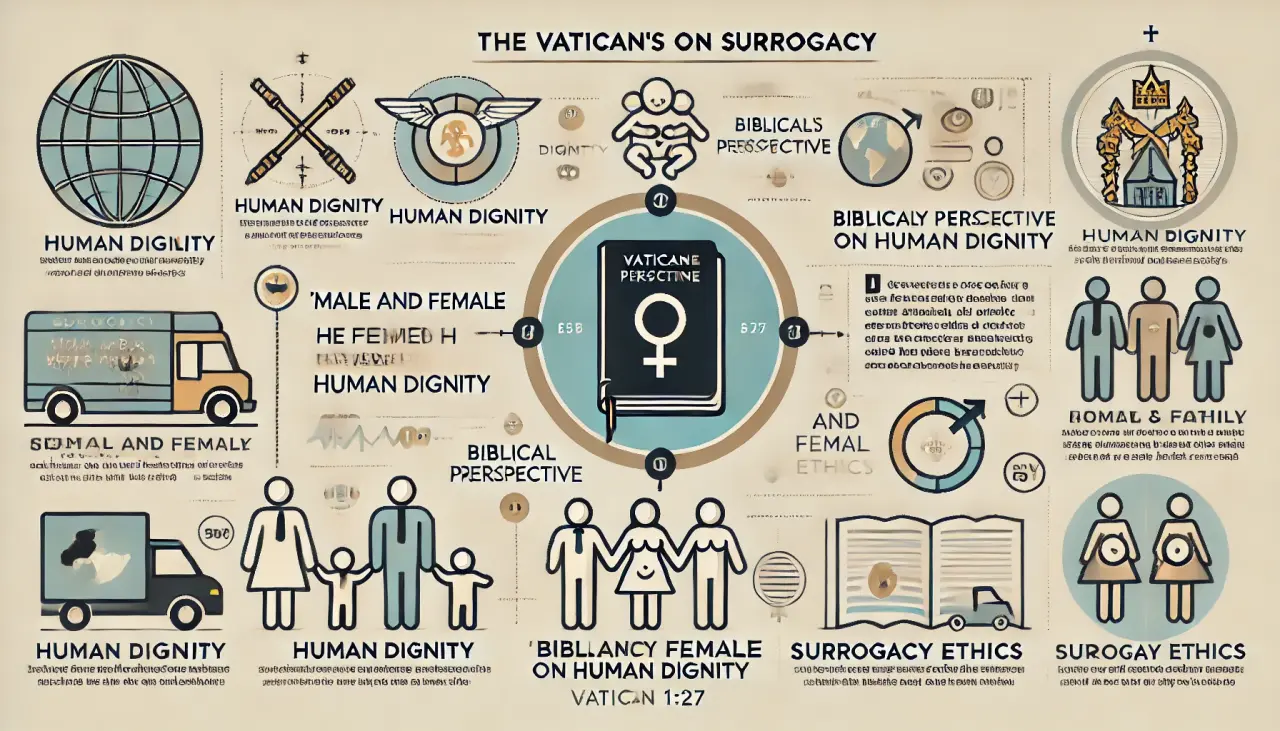
The Vatican’s Stance on Surrogacy: A Biblical Perspective on Human Dignity
The Vatican has released a document criticizing gender theory, transgender surgery, and surrogacy as affronts to human dignity. Is the Vatican’s stance biblical? This question underscores a broader conversation about how surrogacy is viewed in the context of biblical teachings.
While the document itself is not as clearly written as previous pontifical documents, it adheres to scriptural foundations in its critique of these contemporary issues. The document titled Dignitas Infinita commemorates the 75th anniversary of the UN Declaration on Human Rights. Within it, the Vatican evaluates the progress made in addressing human dignity, highlighting issues such as gender theory, surrogacy, and transgender surgery. Surrogacy, in particular, receives only a brief mention but raises questions about its alignment with biblical views on human dignity and family.
Biblical View on Surrogacy and Human Dignity
According to the Vatican, gender theory, including transgenderism, directly contradicts the biblical understanding of human nature as outlined in Genesis 1:27, which states, “So God created man in His own image, in the image of God He created him; male and female He created them.” The Vatican uses this passage to argue that human dignity is rooted in the complementarity of the sexes and their roles in fulfilling the commandment to “be fruitful and multiply” (Genesis 1:28). This belief challenges contemporary views on gender fluidity and highlights the Vatican’s stance on human dignity from a biblical perspective.
Surrogacy in the Bible
While surrogacy is rarely discussed in Scripture, it does appear in the narratives of Abram and Jacob, who took their wives’ servants as surrogates. However, these acts of surrogacy were not intended to be positive models but rather illustrate the complex consequences of deviating from God’s intended design for human relationships. The Bible presents surrogacy as something that can lead to jealousy and family strife, emphasizing the importance of the marital bond in fulfilling God’s design for human dignity.
Surrogacy, from a biblical perspective, raises significant ethical concerns about human dignity. The act of using a surrogate to bear children, while common in modern medical practice, can be seen as a departure from traditional family structures outlined in Scripture. In the Bible, surrogacy was often associated with negative consequences and was never framed as a model of virtuous living. Thus, while surrogacy may not be explicitly condemned in the Bible, its implications for human dignity and family are questioned through its portrayal of jealousy and division.
The Vatican’s Modern Interpretation
The Vatican does not condone gender theory or surrogacy, as both are seen as challenging the biblical understanding of human dignity and family life. The document emphasizes that human dignity is intrinsic to being created in the image of God and is to be respected in all aspects of life, including reproductive choices. The Vatican’s view on surrogacy remains rooted in the belief that traditional family structures, as outlined in Genesis, are essential for maintaining human dignity.
Conclusion: Biblical Dignity and Surrogacy
The Vatican’s stance on surrogacy can be understood within the broader context of its view on human dignity, which is deeply connected to biblical teachings. While the Bible does not provide an explicit condemnation of surrogacy, it highlights the dangers and ethical concerns that arise when human relationships deviate from God’s intended design. Surrogacy, as viewed from a biblical perspective, challenges the foundational understanding of human dignity and family structure.